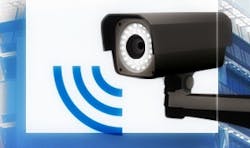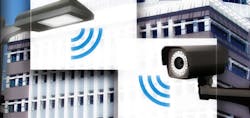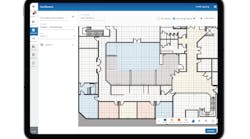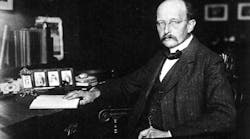Philips Lighting announces collaboration with Silicon Valley's Plug and Play Tech Center while the Wireless Broadband Alliance establishes a Connected City Board to help promulgate the smart city vision being pursued by many cities around the globe.
Royal Philips has announced that the company, and specifically Philips Lighting, will seek to collaborate with forward thinkers in the technology industry on Internet of Things (IoT) technology via a new relationship with the Plug and Play Tech Center based in California's Silicon Valley. The Wireless Broadband Alliance (WBA), the industry association behind Wi-Fi wireless networking, has announced the formation of a Connected City Board that's intended to help cities deploy networks which in many cases will be lighting-centric (also known as connected lighting). Indeed, both indoors and out, LED-based solid-state lighting (SSL), which can deliver even greater energy savings when networked for control, may become the backbone of broader-reaching broadband communications and a variety of municipal, commercial, and private services.
Interested in more articles and announcements on networks & control?
Plug and Play
The Plug and Play Tech Center is an investor and technology accelerator with a global focus. With IoT a primary focus, the center's participants include 300 technology startup companies, 180 investors, and a number of university and corporate partners. Philips will become an anchor partner.
"Silicon Valley is pulsing with many promising Internet of Things start-ups," said Olivia Qiu, chief innovation officer at Philips Lighting. "Our partnership with Plug and Play represents our most recent commitment to Open Innovation, a highly collaborative ‘outside-in’ approach that helps us gain new insights. As an anchor partner, Philips will steer the technology focus toward connected lighting and base experts on-site in Sunnyvale, California, where they will identify and nurture talent, building our capabilities in this rapidly growing market."
Related article: Denmark heads for the bright lights, smart city
Philips has broadly pursued connected lighting on its own with a focus on both indoor and outdoor projects. For example, Philips is behind a pioneering Power-over-Ethernet (POE)-based connected lighting installation in an Amsterdam office building in which the SSL-based network will be used to gather data on occupancy and energy usage. Moreover, the company announced a partnership with Ericsson last year to use networked street lights to serve as mobile broadband access points.
About the new collaboration, Philips said connected lighting combined with sensors can deliver new "business outcomes." Examples provided by the company include understanding building operations to optimize real estate expenses and location-aware retail services. Philips recently announced a deployment of light-based communications, often called visible light communications (VLC), in a location-centric application at major French retailer Carrefour.
In the Plug and Play Tech Center collaboration, Philips will serve as a mentor to many of the participants. But Philips will also be in position to partner with participants that develop synergistic technology for use with connected lighting.
Wireless Broadband Alliance
The Wireless Broadband Alliance, meanwhile, may be playing catch-up in starting the connected-city push. Most installations to date use an Ethernet backbone combined with either wireless mesh local networks such as ZigBee or communications over power lines. But the organization is focused on next-generation Wi-Fi technology that could come into play in connected cities.
The first meeting of the WBA Connected City Board will take place in October in conjunction with the Wi-Fi Global Congress in San Jose, CA. The organization hopes to develop and share best practices for converged networks covering municipal-wide geographies. A number of cities working on such projects will attend.
"The discussions with city leaders at our recent WBA events have clearly demonstrated the need for a Connected City Board,” said J.R. Wilson, chairman of the WBA. “To power the vision for Smart Cities, cities around the world are deploying city-wide Wi-Fi and integrating unlicensed and licensed spectrum-based services and business models for managing connectivity, Internet of Things, Big Data and converged services based opportunities for city residents, visitors, and businesses. The WBA, as a global trade association, has a strong heritage in bringing together licensed and unlicensed technologies and creating best practices and de facto industry standards for a diverse ecosystem. This heritage allows WBA to create an environment for City Managers and CIOs to create best practices with their counterparts and relevant industry stakeholders, and to discuss ways to optimize technology to deliver the societal benefit while leveraging public/private partnerships.”






